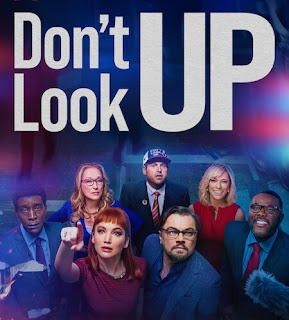 |
| Pope Francis speaking at the Vatican on 10/4/23] |
There are many reasons to praise Pope
Francis. For example, just nine days ago (on 10/4/23), the Pope issued an
“apostolic exhortation” under the title Laudate Deum (=Praise God). That
document, which can be read in full here, was directed “to all people of good will” and was “on the
climate crisis.”
Last month, I read much of Fratelli tutti,
Pope Francis’s encyclical officially published by the Vatican in 2020 on
October 4, the feast day of Francis of Assisi. While there was much good and
important content, I was somewhat critical of it as it seemed to be lacking
specificity or concreteness.
This month’s new document, however, which is
a commentary on Laudato si' (=Praise Be to You), the Pope’s major 2015 encyclical
on the environment, is generally quite specific and concrete. In the second
paragraph of this recent “exhortation,” the Pope says:
…with the passage of time, I have realized
that our responses have not been adequate, while the world in which we live is
collapsing and may be nearing the breaking point.
Over the past twenty months, I have cited
Michael Dowd and others who have spoken warningly about collapse, but here is a
clear statement about that fateful future by the Pope.**
Also, an Oct. 4 Vatican News article (see here) states that in Laudate Deum the Pope “criticizes
climate change deniers, saying that the human origin of global warming is now
beyond doubt.”
Early this month, the Pope convened
the three-week General Assembly of the Synod of Bishops at the Vatican,
sometimes called the Super Bowl of the Catholic Church. It drew bishops from
around the world to discuss hot-button issues.
Some of those issues are whether priests
should be allowed to get married, if divorced and remarried Catholics should
receive communion, whether women should be allowed to become deacons, and how
the church will handle matters around the LGBTQ community.
It remains to be seen how, or when, these
contentious matters will be resolved, but for those of us who are egalitarians,
the Pope’s willingness to consider such matters is certainly praiseworthy.
Sadly, many USAmericans have little
praise for the Pope. Politics takes precedence over their religious faith. Or
for others, they hold to an outdated, conservative Catholicism and are, literally,
more traditionally Catholic than the Pope.
According to an Aug. 28 APNews.com post, “Many conservatives have blasted
Francis’s emphasis on social justice issues such as the environment and the
poor,” and they have also branded as heretical his openness “to letting
divorced and civilly remarried Catholics receive the sacraments.”
As an example of politics taking precedence
over the position of the Pope, consider the contrast between Francis’s recent
“exhortation” regarding global warming and U.S. Catholics.
The Pope, as well as the preponderant
majority of climate scientists around the world, emphasizes that “the human
origin of global warming is now beyond doubt.”
But last month, Pew Research Center (here) reported that only 44% of U.S. Catholics say Earth is warming
mainly due to human activity—and of U.S. Catholics who are Republicans or lean
Republican, only a strikingly low 18% think that global warming is human-caused.
In response to such criticism, the Pope
has called the strong, organized, reactionary attitude of some Catholics in the
U.S. Church “backward,” and has stated that their faith has been replaced by
ideologies.
Francis reminds these people that
“backwardness is useless, and they must understand that there’s a correction
evolution in the understanding of questions of faith and morals” that allows
for doctrine to progress over time.
Such progressiveness is one of the main
reasons I have praise for the Pope. His deep concern for the future well-being
of all people around the world has led him to claim that a correct
understanding of Catholic doctrine allows for change over time.
Would that all Catholics, and all
Protestants as well, could embrace these progressive ideas of the
forward-looking Pope.
_____
** With considerable sadness I am sharing the
news that Michael Dowd (b. 11/1958) died on October 7 as the result of a fall
in a friend’s home. More information about his death and memorial service is
available here.





.jpg)